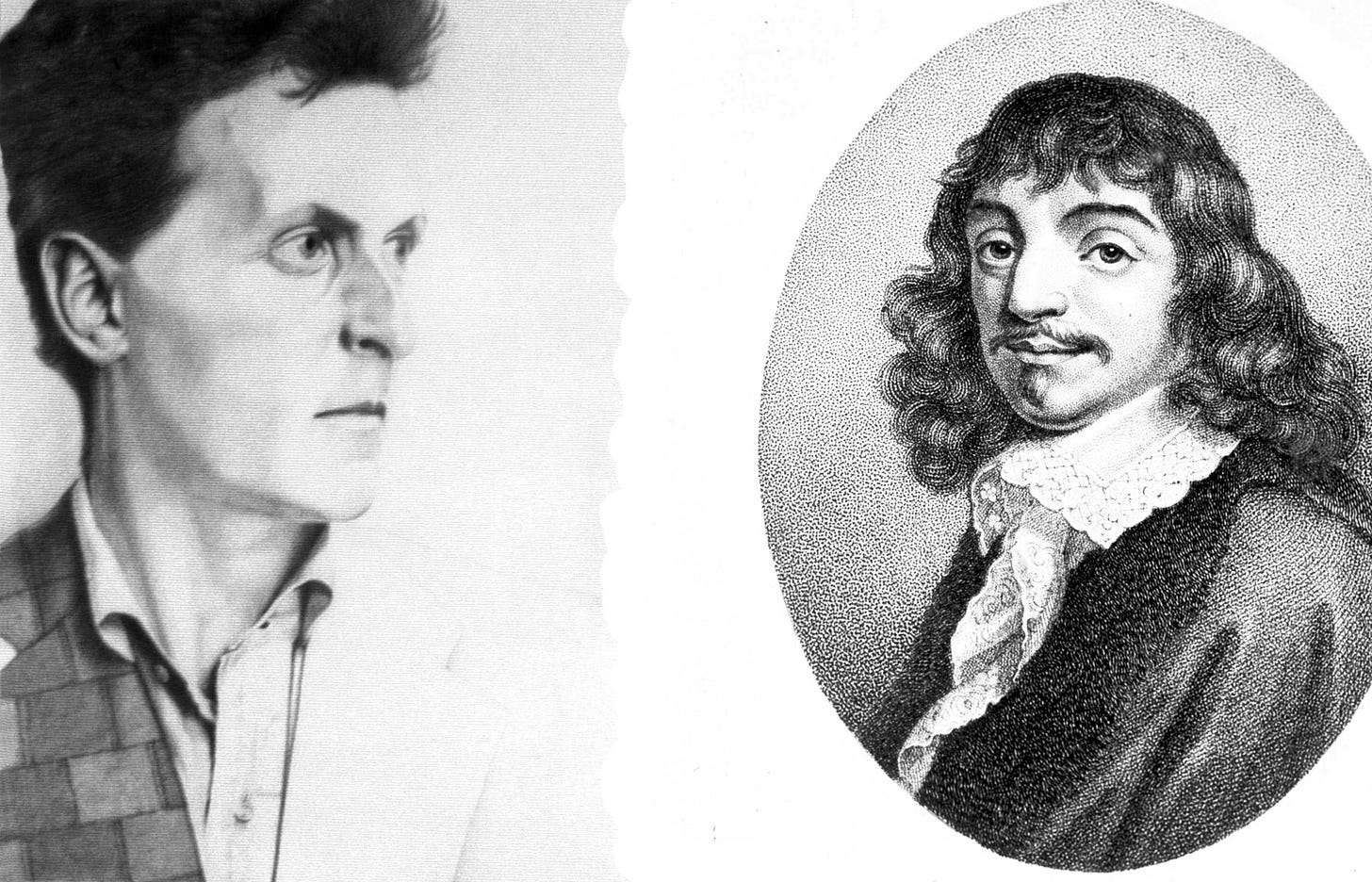“He Knew What Was in the Heart of Man”: Spiritual Cardiology

Corrections
Last Friday’s post contained two errors. First, and surely owing to jet lag, I wrote that the abbot of Norcia “pontificated on July 11th,” when in fact the Mass was a solemn Mass offered by the monastery’s founder Fr. Cassian Folsom, with the abbot in choir. (The abbot did lead the procession afterwards in cope and mitre.) Second, in the gallery of pictures from the town of Norcia, I said that I’d include an image “from the building company’s website showing the present appearance of the interior” of the rebuilt basilica — but neglected to include it. So here it is, in the best resolution I could find:
And now to this week’s feature article.
Wittgenstein vs. Descartes
“In my heart I have determined on it.” And one is even inclined to point to one's breast as one says it. Psychologically this way of speaking should be taken seriously. Why should it be taken less seriously than the assertion that belief is a state of mind?
Thus spake Wittgenstein.1
In his treatise The Passions of the Soul, Descartes claims that “the opinion of those who think that the soul receives its passions in the heart…is not of any weight” (art. 33). He further states that the “sole foundation” of this traditional view “is the feeling we have of the changes brought about in the heart by the passions,” which Descartes considers to be purely physical reactions to an excited brain.
Such an account, given in terms of material causes operating through the nervous system, has by and large prevailed in the modern West. In the wake of modern medicine, the ancient and medieval notion that the heart plays a central role in the psychic and spiritual constitution of man has been discarded as a relic of inadequate anatomical knowledge and archaic symbolism.
If the traditional view intended to speak to biology alone, such a criticism might hold water; but it is highly unlikely that (mere) biology was their frame of reference. What did proponents of the “heart” as a spiritual faculty intend to convey? Does adopting the Cartesian materialistic demotion of the heart obscure an essential truth of epistemology and faith? Has Wittgenstein scored another point against the father of modern philosophy?
Keep reading with a 7-day free trial
Subscribe to Tradition and Sanity to keep reading this post and get 7 days of free access to the full post archives.




